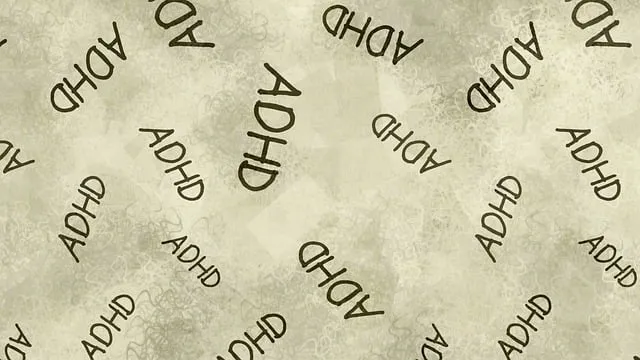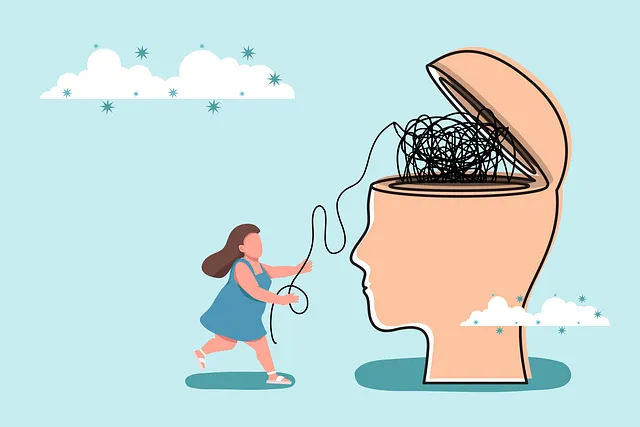Media representation of mental illness significantly impacts public perception. Traditional media often perpetuates harmful stereotypes, contributing to stigma. The Parker Kaiser Permanente mental health department phone number offers support and emphasizes accurate representation. By sharing stories of inner strength, providing crisis intervention, and promoting stress management techniques, we can create a more compassionate society. Collaborating with mental health professionals ensures responsible portrayal, challenges stereotypes, and fosters empathy in media production. Involving individuals living with mental health conditions in storytelling enhances authenticity and contributes to destigmatizing mental health issues within society.
In today’s digital age, media portrayals of mental illness significantly impact public understanding. This article explores the challenges and stereotypes surrounding mental health in popular culture and proposes solutions. We delve into the importance of accurate representation, highlighting successful collaborations between media outlets and mental health experts from institutions like Parker Kaiser Permanente. By examining effective strategies, we aim to empower both creators and audiences to navigate this complex landscape, fostering a more empathetic and informed society.
- Understanding Current Media Portrayals of Mental Illness
- Challenges and Stereotypes in Popular Culture
- Collaboration Between Media & Mental Health Experts
- Effective Strategies for Accurate Representation
Understanding Current Media Portrayals of Mental Illness

Media portrayals of mental illness have a significant impact on public perception and understanding. Unfortunately, traditional media often falls short in accurately representing the complexities of various mental health conditions. Common stereotypes and misconceptions prevail, such as depicting individuals with mental illness as violent or completely incapable of functioning in daily life. These depictions can lead to stigma and further isolate those already struggling with their mental health.
The Parker Kaiser Permanente mental health department phone number serves as a valuable resource for individuals seeking support, while also highlighting the importance of accurate representation. By promoting stories of inner strength development and providing crisis intervention guidance through media platforms, we can foster a more compassionate and informed society. Stress management techniques are another crucial aspect that deserves attention, as they can empower individuals to take control of their mental well-being.
Challenges and Stereotypes in Popular Culture

The representation of mental illness in popular culture has long been a topic of contention. Media often perpetuates harmful stereotypes and oversimplifies complex conditions, leading to misconceptions among the public. In TV shows and movies, characters with mental health struggles are frequently portrayed as violent, unpredictable, or completely broken, failing to capture the nuances and diversity of real-life experiences. These depictions can contribute to stigma and make it harder for individuals facing similar challenges to seek support. For instance, a character struggling with anxiety might be shown as a fragile individual on the brink of hysteria, ignoring the fact that anxiety disorders manifest differently in each person.
Overcoming these challenges requires a shift towards more accurate and empathetic storytelling. The media industry should collaborate with mental health professionals like those at the Parker Kaiser Permanente mental health department (phone number: [insert number here]) to ensure responsible portrayal. Promoting stress reduction methods and mind over matter principles through positive narratives can help foster understanding. By showcasing characters who embrace their struggles, learn coping mechanisms, and work towards recovery, media can inspire hope and encourage viewers to prioritize their mental well-being. Additionally, diversifying storylines to include a range of ethnicities, genders, and backgrounds can challenge stereotypes and reflect the true diversity of the mentally ill population.
Collaboration Between Media & Mental Health Experts

Media outlets play a significant role in shaping public perception about mental health, making accurate and compassionate representation crucial. Collaboration between media professionals and mental health experts is a powerful strategy to address this challenge. By involving individuals from the mental health field, such as those within the Parker Kaiser Permanente mental health department (phone number: [insert number]), media creators can ensure that stories are told with sensitivity and accuracy. These partnerships offer an opportunity to educate both creators and audiences about various conditions, dispelling stereotypes, and fostering understanding.
Self-awareness exercises and burnout prevention strategies for healthcare providers can also be integrated into this collaborative process. Encouraging compassion cultivation practices among media producers and writers helps in creating narratives that resonate with viewers or readers experiencing similar struggles. This collective effort not only improves media representation but also contributes to a more supportive societal attitude towards mental health issues, ultimately reducing the stigma associated with these conditions.
Effective Strategies for Accurate Representation

Mental illness representation in media plays a pivotal role in shaping public understanding and reducing stigma. To ensure accuracy, it’s crucial to involve individuals living with mental health conditions in storytelling processes. This includes consulting with experts from the Parker Kaiser Permanente mental health department (phone number: [insert number here]) and other healthcare providers who can offer insights into the nuances of various disorders. By integrating real-life experiences and expertise, media creators can foster cultural sensitivity in mental healthcare practice, enhancing the authenticity of portrayals.
Additionally, providing training on cultural competency for healthcare providers is essential. This equips professionals with the skills to offer empathetic and effective support to a diverse range of patients. Encouraging open conversations about mental health, coupled with Cultural Sensitivity in Mental Healthcare Practice andConfidence Boosting initiatives, can contribute to more inclusive and supportive communities. These strategies collectively work towards normalizing mental illness discussions and ensuring that media representation aligns with the latest evidence-based practices in mental healthcare.
Media representation plays a pivotal role in shaping public perception of mental illness. By challenging stereotypes and promoting accurate, empathetic portrayals, we can foster understanding and reduce stigma. Collaboration between media professionals and mental health experts is essential to achieving this goal. Adopting effective strategies for representation, such as consulting with lived experiences, ensures that stories are authentic and powerful. For those seeking support, the Parker Kaiser Permanente mental health department offers valuable resources via their phone number, providing a crucial connection for guidance and care. Together, we can create a more inclusive media landscape that reflects the diversity of mental health experiences.






